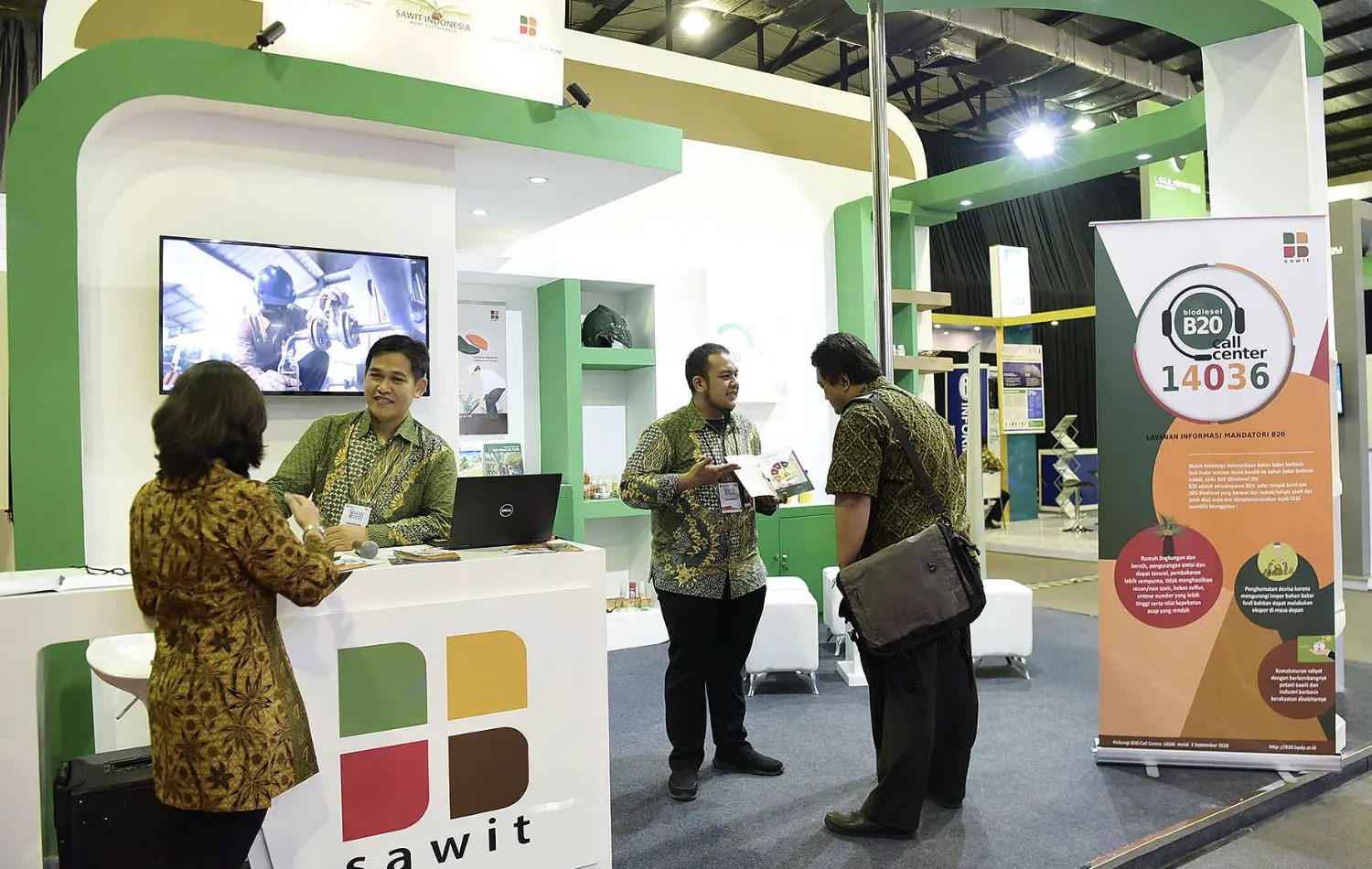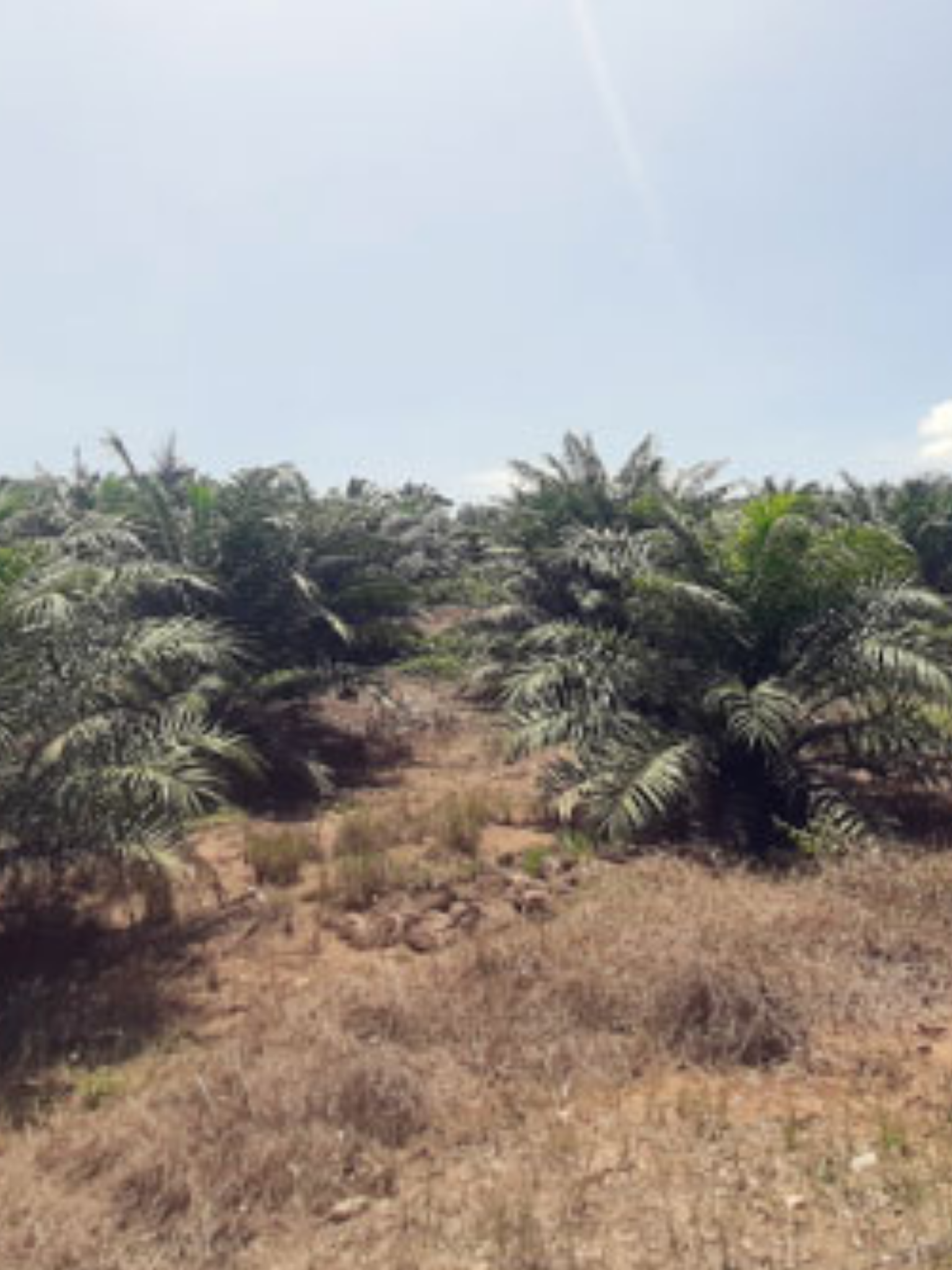Guest contributor Mahardika Satria Hadi is the original author. This article is part of RIN Fellow Erwan Hermawan's project.
THE Oil Palm Plantation Fund Management Agency (BPDPKS) was established because of the government’s wish to mitigate the drop in the price of crude palm oil (CPO) due to an oversupply. At the time, in 2015, Indonesia had produced 32 million tons of CPO, making the country the world’s greatest palm oil producer.
But the global market could not absorb all of the CPO. As a result, its price dropped and the oil palm industry was threatened by major losses. The government began to rack its brains. Finally, Coordinating Minister of the Economy Sofyan Djalil then merged the oversupply issue with climate mitigation efforts by producing biodiesel—mixing diesel and palm oil to reduce emission. “At the time, we already had 5-percent biodiesel, or B5,” said Sofyan, now Minister of Agrarian Affairs and Spatial Planning, on Wednesday, April 6.

Whistleblowers and others in possession of sensitive information of public concern can now securely and confidentially share tips, documents, and data with the Pulitzer Center’s Rainforest Investigations Network (RIN), its editors, and journalists.
Sofyan asked Lin Che Wei—a capital market analyst and founder of the Independent Research & Advisory Indonesia—who was, at the time, member of the coordinating minister for the economy’s assistance team, to assess the plan. After 16 meetings with industry players, they agreed to form the BPDPKS on June 15, 2015.
According to Sofyan, the basis for the BPDPKS was the Plantation Law, which requires the government to make efforts to stabilize palm oil prices. One of the ways was to raise its proportions in biodiesel, from B5 to B15, B20, and now B30. According to Sofyan’s calculations, biodiesel can absorb 10 million tons of palm oil.

Lin Che Wei does not deny his involvement in forming the BPDPKS. According to him, besides Sofyan, the Coordinating Ministry of the Economy’s Deputy of Food Coordination and Agrobusiness Musdhalifah Machmud, as well as the finance ministry, also played a great part in creating the institution. “My part was making calculations,” said Che Wei. “I calculated the difference between POGO (palm oil gas oil), vegetable oils market forecast, and others. Policy was the minister’s part,” he explained.
So, how is the BPDPKS funded? By collecting levy from each ton of CPO exported. The levy paid by oil palm companies is then used to subsidize the difference between the price of diesel and biodiesel. In short, the money is taken from oil palm companies to then be distributed to oil palm companies. As of 2021, the BPDPKS had collected Rp138.17 trillion (US$ 9.5 billion) in levies. This year, levies are estimated to reach Rp57 trillion.
The BPDPKS funds are allocated according to decisions made by the steering committee, currently led by Coordinating Minister of the Economy Airlangga Hartarto, with seven ministers as members. Because of its status as a public service agency, the BPDPKS is free to channel its funds from levies—and even not to collect levies.
In 2019, for example, the steering committee stopped collecting levy from CPO exports because of the price of CPO was in decline. The problem is, biodiesel subsidy was still channeled to companies. As a result, the BPDPKS could no longer sustain itself and the government had to compensate using the state budget. “We already returned the money last year, in the amount of Rp2.78 trillion,” said Eddy Abdurrachman, former Director-General of Customs and BPDPKS Chief Executive Officer (CEO), on April 5.
Because its funds are not submitted to the state, the BPDPKS also has the freedom to channel its money as it wishes. Although the funds are meant to be used to subsidize oil palm farmers and research, when there was a scarcity of cooking oil as companies chose to export when global prices spiked to over US$1,000 per ton, the BPDPKS also intervened.
The steering committee, said Eddy, instructed the BPDPKS to subsidize 1.2 million kiloliters of bulk cooking oil with a prepared budget of Rp8 trillion (US$ 551.7 million). Although it was BPDPKS’s first time subsidizing cooking oil, said Eddy, the subsidy was still part of its duties. He quoted Presidential Regulation No. 61/2015, which serves as the basis for forming the BPDPKS. “There is a duty to fulfill food needs,” he said, “among others, cooking oil.”






